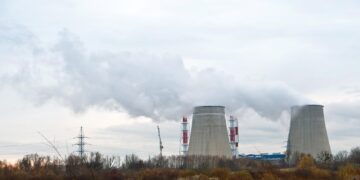Unseen Victims: Addressing the Overlooked Impact of Societal Issues
In society, numerous issues manifest visibly and garner widespread attention. However, there are also “unseen victims” — groups or individuals suffering silently, often overlooked by mainstream awareness campaigns, media coverage, and policy-making efforts. This article delves into the realm of these unseen victims, identifies who they are, and discusses the importance of acknowledging and addressing their struggles.
Who Are the Unseen Victims?
Unseen victims come from various backgrounds and face different types of adversities. These may include:
- Mental Health Sufferers: Despite improvements in mental health awareness, many individuals still suffer in silence, either because of stigma or lack of access to appropriate care.
- Elderly Abuse: Often hidden within families or institutions, elderly abuse remains significantly underreported.
- Children in Poverty: While child poverty rates are discussed globally, the personal stories of these children often remain untold.
- Minorities Facing Discrimination: Many minority groups face systemic discrimination which does not make headlines.
- Victims of Environmental Injustice: People living in areas disproportionately affected by pollution and climate change often lack the resources to relocate or advocate for themselves.
The Psychological Impact on Unseen Victims
Unseen victims may experience a range of psychological impacts from their circumstances. Chronic stress, anxiety, depression, and a sense of helplessness are common. The lack of visibility and recognition exacerbates these feelings, as these individuals often feel like their suffering is not acknowledged or understood.
Why Is It Crucial to Address the Plight of Unseen Victims?
Addressing the needs of unseen victims is not only a matter of human rights but also essential for the overall health of society. Here are some reasons why:
- Moral Responsibility: Every individual deserves to live with dignity and have their suffering acknowledged and addressed.
- Social Stability: Neglecting large segments of the population can lead to broader social and economic instability.
- Public Health: Many issues faced by unseen victims, like mental health and environmental factors, have broader public health implications.
Common Questions About Unseen Victims
How can we better identify unseen victims?
Identifying unseen victims involves both community engagement and better data collection practices. Local organizations and healthcare providers can play crucial roles in recognizing and reporting cases.
Why are these victims often overlooked?
Several factors contribute to the invisibility of certain victims, including social stigma, lack of media interest, insufficient data, and the invisibility of certain demographics in societal structures.
What can be done to improve their situation?
Improving the plight of unseen victims requires tailored public policies, increased funding for targeted programs, community support structures, and greater public awareness.
How Can Society Help Unseen Victims?
Enhancing Visibility Through Media and Advocacy
One of the primary steps in helping unseen victims is increasing their visibility. Media outlets, social media, and advocacy groups can shine a light on these issues, making them more difficult for the general public and policymakers to ignore.
Policy Change and Government Intervention
Effective policy changes are crucial. This can range from implementing stricter regulations against elder abuse, improving mental health care accessibility, or ensuring environmental justice. Government bodies need to take targeted action based on thorough data and research.
Community Support Networks
Building robust community support networks can significantly help unseen victims. These networks can provide immediate assistance and resources, from mental health support to aid in dealing with discrimination or abuse.
Educational Programs
Education plays a critical role in both preventing many of these issues and in raising awareness about them. Educational programs can be aimed at young people to cultivate a culture of respect and understanding, or they can be designed to educate adults on recognizing and combating issues like abuse or discrimination.
Conclusion: A Call for Awareness and Action
The plight of unseen victims represents a significant challenge within various societies globally. By raising awareness, enacting targeted policies, and fostering a supportive community environment, we can begin to alleviate the suffering of these individuals. It is crucial for NGOs, governments, and individuals to work together to bring these victims to light and address their needs, ensuring a more inclusive and equitable society for all.
Engaging with topics such as unseen victims not only helps those directly affected but also enhances societal understanding and empathy, leading to a more cohesive and supportive community overall.










